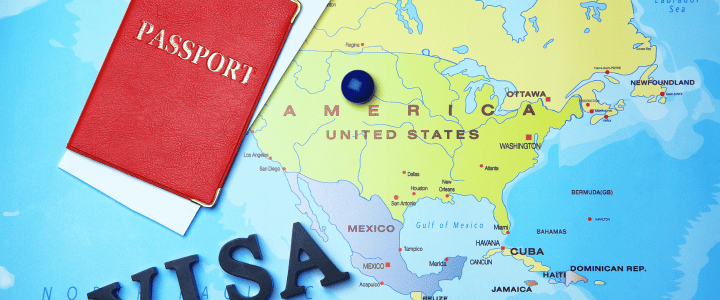Impact of U.S. Immigration Raids on Indians: What Visa Applicants Need to Know
The recent surge in U.S. immigration raids has significantly impacted Indian nationals, especially those entering illegally or overstaying their visas. With increased enforcement measures, many Indians have faced deportation, visa scrutiny, and legal challenges. For aspiring immigrants and visa applicants, understanding these developments is crucial to ensuring compliance with immigration laws and avoiding severe repercussions.

Increase in Immigration Raids and Deportations
The U.S. has intensified its immigration enforcement, targeting undocumented immigrants and those with expired visas. Reports indicate that in the fiscal year 2023-2024, over 1,100 Indian nationals were deported for attempting illegal entry or overstaying their visas. In some instances, large groups of Indian migrants have been repatriated in a single operation, such as the recent case where more than 100 individuals were sent back on a U.S. military aircraft.
Why Are Indians Affected?
Indians have been among the largest groups attempting unauthorized entry into the U.S., often through dangerous routes like the Mexico-U.S. border. Some reasons behind this trend include:
- Job Opportunities: Many Indians seek better employment prospects in the U.S., leading some to bypass legal routes due to long visa processing times.
- Family Reunification: Some individuals attempt illegal migration to reunite with family members who are already settled in the U.S.
- Education and Permanent Residency Aspirations: With the U.S. being a popular education hub, some students overstay their visas in hopes of finding employment and obtaining permanent residency.
Increased Visa Scrutiny
Due to the rising number of illegal entries, U.S. immigration authorities have tightened visa application processes for Indian nationals. Applicants now face:
- Stricter Documentation Requirements: Visa officers are thoroughly scrutinizing travel history, financial stability, and intent of stay.
- Increased Interview Rigor: Many visa applicants face more in-depth interviews to determine their likelihood of returning to India after their visa term.
- Longer Processing Times: With additional checks, visa processing now takes longer, making it important for applicants to plan ahead.
Legal Consequences of Illegal Entry or Overstaying
For those who attempt to enter the U.S. illegally or stay beyond their visa expiration, the consequences can be severe:
- Deportation: Immediate removal from the U.S. with potential bans on re-entry.
- Visa Denials in the Future: A history of illegal stay can result in difficulties obtaining any U.S. visa in the future.
- Legal Penalties: Individuals caught in immigration raids may face legal charges, fines, or even imprisonment.
What Visa Applicants Should Do
To ensure smooth visa approval and avoid legal troubles, Indian applicants should:
- Follow Legal Channels: Always apply for visas through official U.S. consulates and follow the prescribed immigration process.
- Maintain Proper Documentation: Ensure all financial, educational, and employment records are accurate and up to date.
- Avoid Fake Consultancies: Many unauthorized agents provide false promises of easy U.S. entry, leading applicants into legal trouble.
- Respect Visa Terms: Avoid overstaying and adhere to visa conditions, including reporting any status changes.
- Stay Updated on Immigration Policies: The U.S. regularly updates its immigration policies, and staying informed can help applicants navigate changes effectively.
Conclusion
The U.S. government’s crackdown on illegal immigration has led to increased deportations and stricter visa scrutiny for Indian nationals. Aspiring travelers and immigrants must be aware of these policies to avoid legal issues and ensure compliance with immigration laws. By following legal pathways, maintaining proper documentation, and respecting visa conditions, Indian nationals can improve their chances of successful immigration while avoiding the risks associated with illegal entry or overstays. Source Article

